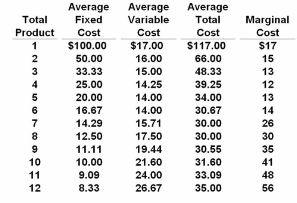In order for a market to reach equilibrium, producers must have enough information to make informed decisions about purchasing the product.
Answer the following statement true (T) or false (F)
False
You might also like to view...
Kevin is re-finishing an antique grandfather clock that he purchased at a flea market for $300. He expects to be able to sell the clock for $450
At the last minute, Kevin discovers that he needs to repair the gears at a cost of $175 to make the clock worth $450 to potential buyers. It turns out that he could also sell the clock now, without completing the additional repairs, for $250. What should Kevin do? A) He should sell the clock now for $250. B) He should keep the clock but not make the repairs since the original $300 is a sunk cost. C) He should complete the additional repairs and sell the clock for $450. D) He should keep the clock after making the repairs since it is not rational to spend a total of $475 on an item that can only be sold for $450. E) Kevin is indifferent between selling the clock as is or selling it after completing the repairs.
Suppose a country, whose production and consumption of cell phones is large relative to the world market, has just entered the global market. If the country is a net-importer of cell phones, we would expect:
A. an increase in both world price and quantity of cell phones. B. a decrease in world price, and increase in world quantity of cell phones. C. an increase in world price and decrease in world quantity of cell phones. D. a decrease in both world price and quantity of cell phones.
Labor productivity is measured by _____ per _____.
Fill in the blank(s) with the appropriate word(s).
Refer to the data. If the market price for the firm's product is $32, the competitive firm will produce:

A. 8 units at an economic profit of $16.
B. 6 units at an economic profit of $7.98.
C. 10 units at an economic profit of $4.
D. 7 units at an economic profit of $41.50.